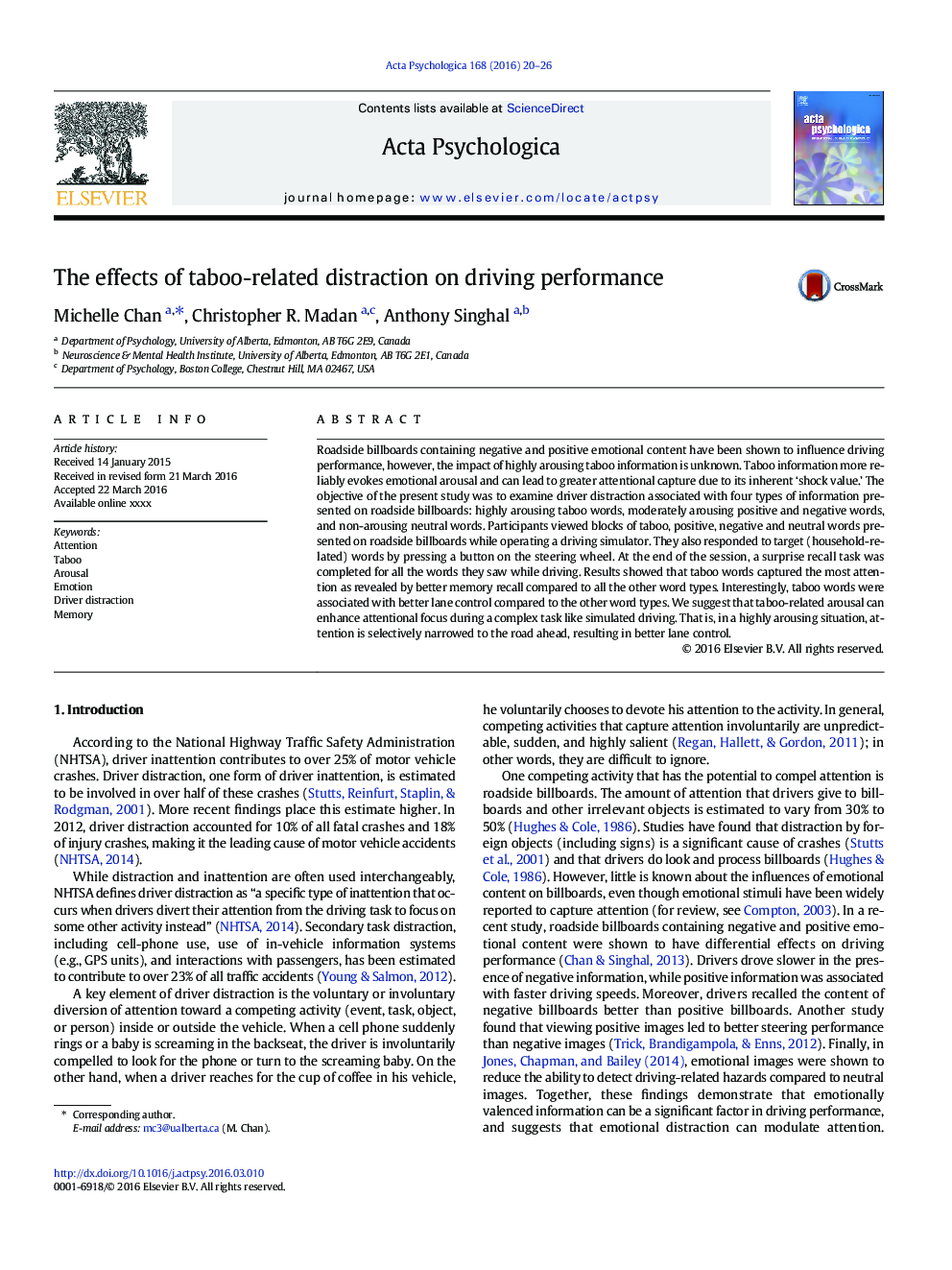| Article ID | Journal | Published Year | Pages | File Type |
|---|---|---|---|---|
| 7277042 | Acta Psychologica | 2016 | 7 Pages |
Abstract
Roadside billboards containing negative and positive emotional content have been shown to influence driving performance, however, the impact of highly arousing taboo information is unknown. Taboo information more reliably evokes emotional arousal and can lead to greater attentional capture due to its inherent 'shock value.' The objective of the present study was to examine driver distraction associated with four types of information presented on roadside billboards: highly arousing taboo words, moderately arousing positive and negative words, and non-arousing neutral words. Participants viewed blocks of taboo, positive, negative and neutral words presented on roadside billboards while operating a driving simulator. They also responded to target (household-related) words by pressing a button on the steering wheel. At the end of the session, a surprise recall task was completed for all the words they saw while driving. Results showed that taboo words captured the most attention as revealed by better memory recall compared to all the other word types. Interestingly, taboo words were associated with better lane control compared to the other word types. We suggest that taboo-related arousal can enhance attentional focus during a complex task like simulated driving. That is, in a highly arousing situation, attention is selectively narrowed to the road ahead, resulting in better lane control.
Related Topics
Life Sciences
Neuroscience
Cognitive Neuroscience
Authors
Michelle Chan, Christopher R. Madan, Anthony Singhal,
